Today at its annual WWDC 2023 conference, Apple took the wraps off the Vision Pro, its long-rumored augmented reality (AR) headset. The Vision Pro is one of Apple’s most ambitious products to date — one years in the making and packed with technology that just might warrant the sky-high price tag.
But there was much more to today’s announcement than hardware. Alongside the Vision Pro, Apple debuted an entirely new operating system, visionOS, and a slew of apps that’ll be available on the OS — and, by extension, the Vision Pro — at launch.
It’s a lot to keep track of — which is why we created a handy, condensed guide to everything Apple announced around the Vision Pro and visionOS.
Vision Pro has a ski goggle–like design
The first thing you’ll notice about the Vision Pro is the chassis, which evokes a pair of high-end ski goggles. A tinted, continuous front panel wraps around the wearer’s eyes, acting as a lens and concealing a fan that draws air through the headset to cool the electronics inside.
Around the back of the Vision Pro, there’s a band that can be easily swapped out, and a dial for adjusting the tightness of the headset. Zeiss worked in partnership with Apple to create magnetic lenses for prescription wearers.
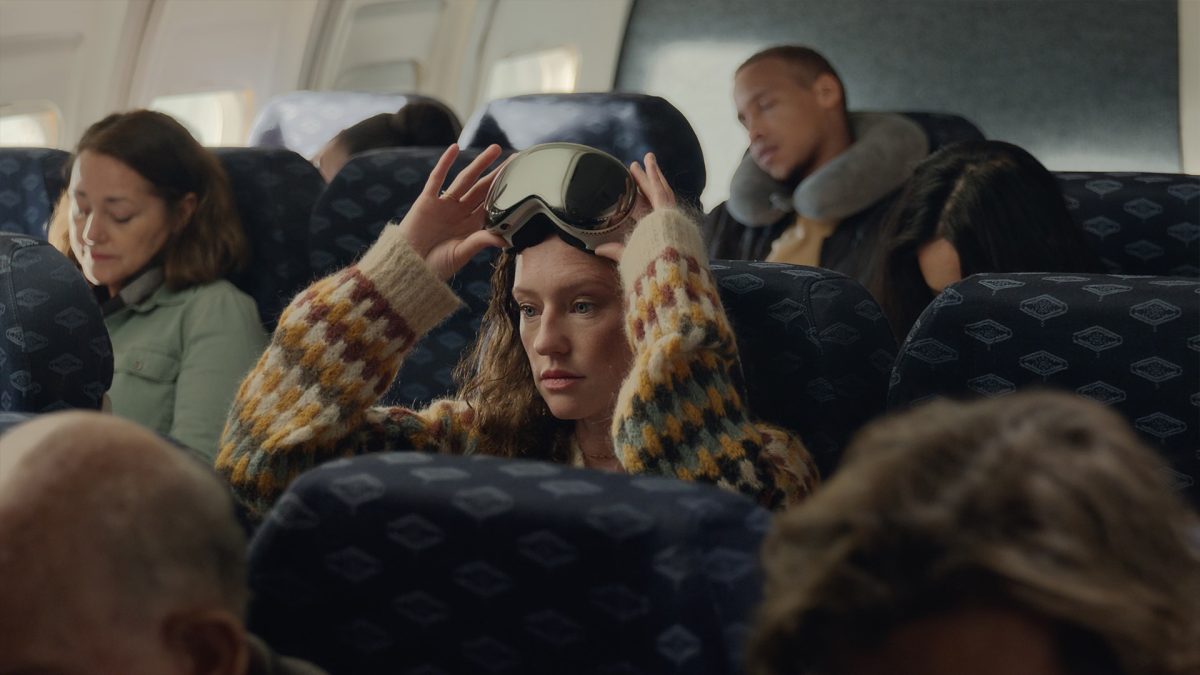
Image Credits: Apple
Unlike some AR headsets on the market, the Vision Pro’s battery pack isn’t built into the device itself. A wire running from the rear connects to a battery pack, which provides up to two hours of use. Or Vision Pro wearers can plug into the wall for an extended experience.
One presumes that the displays suck up most of the power. The Vision Pro has two (plus an external panel), one for each eye, with 23 million pixels across both. A custom 3D lens ensures that the UI always remains within view, while features like HDR and “wide color” deliver an ostensibly superior image.
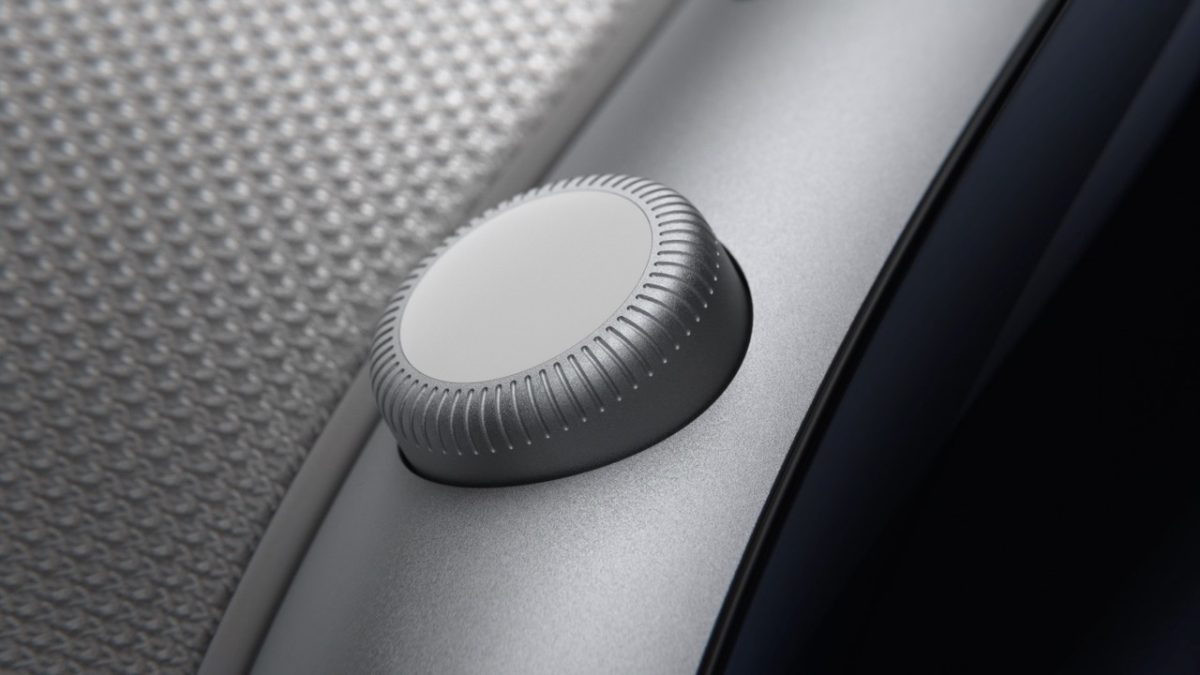
Image Credits: Apple
IR cameras inside of the Vision Pro track your eyes, while downward-facing cameras on the exterior of the chassis track hands. A third set of sensors — lidar sensors — sense objects around the Vision Pro in real time, tracking their positions.
All of the Vision Pro’s sensors — 23 in total, including a dozen cameras, five sensors and six mics — feed into the R1, a new Apple-originated chip designed to “eliminate lag” and stream images to the headset’s display “eight times faster than the blink of an eye” (as per Apple PR).
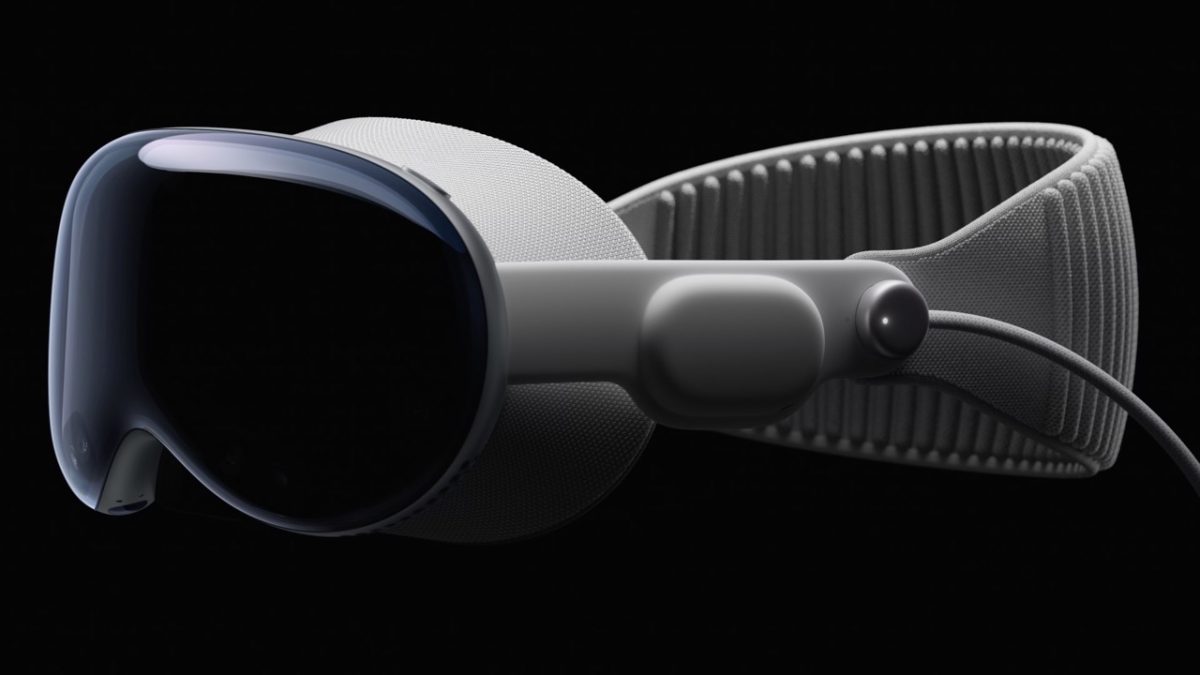
Image Credits: Apple
The R1 also enables EyeSight, a feature of the Vision Pro that projects a live feed of the wearer’s eyes to the aforementioned external display. It has the effect of making the headset look transparent — at least in pre-recorded videos. The jury’s out on how well it works in practice, of course.
visionOS
The software powering the Vision Pro is visionOS, which Apple describes as “the first OS designed for the ground up for spatial computing” — “spatial computing” being Apple’s phrase of choice for AR and virtual reality experiences. At the architecture level, visionOS shares core blocks in common with MacOS and iOS but adds a “real-time subsystem” for processing interactive visuals on the Vision Pro.
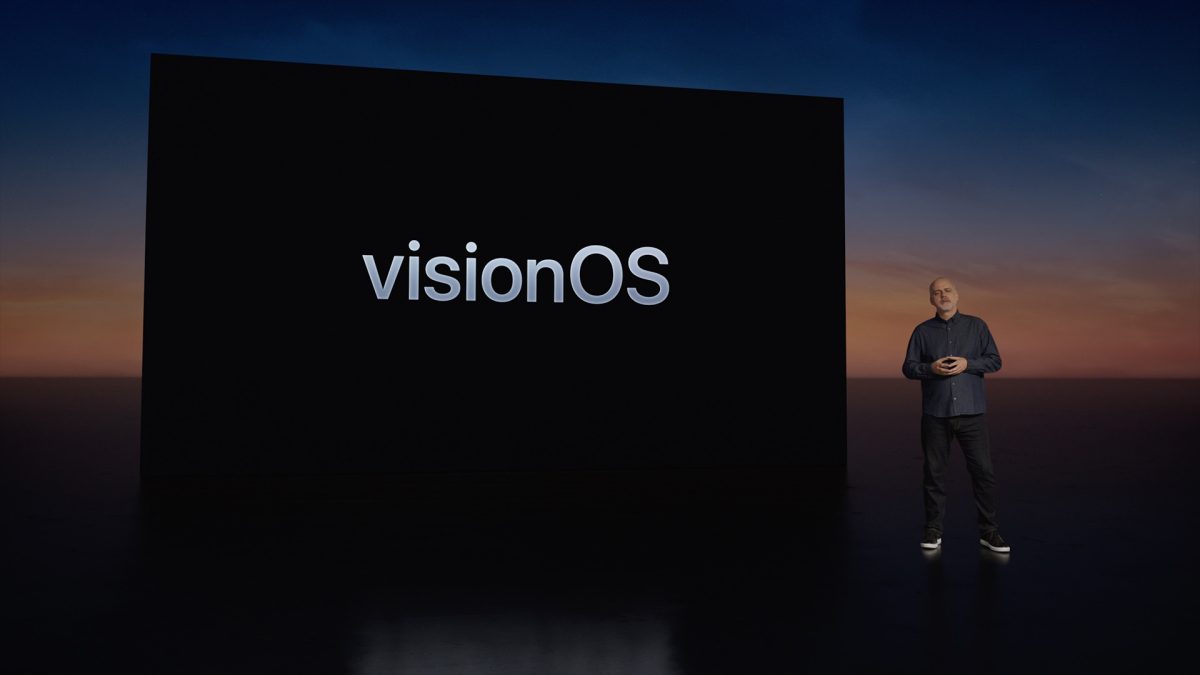
Image Credits: Apple
The three-dimensional interface of visionOS frees apps from the boundaries of a traditional display so that they can appear side by side at different scales. The UI responds dynamically to natural light, casting shadows to help communicate scale and distance.
At launch, visionOS will feature apps — including Unity apps, which run natively on the Vision Pro — from Adobe (specifically Lightroom), Microsoft (Office) and other major developers. There’s medical software for looking at renders of anatomy and an engineering app for visualizing physics phenomena, like airflow, on top of real-world objects.
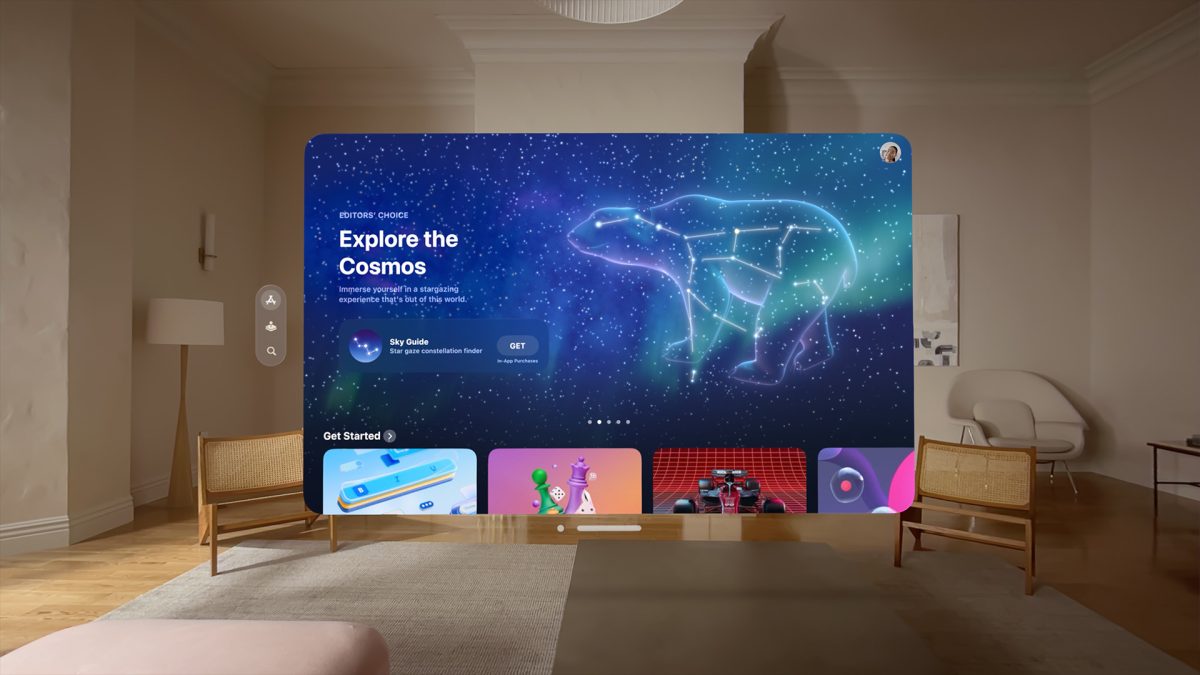
Image Credits: Apple
You’ll get those apps and more from a brand-new app store, which is launching simultaneously with the Vision Pro. Beyond apps, over 100 Apple Arcade titles will be available to play on VisionOS on “day one,” Apple says.
At least one iOS mainstay will make the jump to visionOS: FaceTime. On the Vision Pro, FaceTime will work by creating a 3D avatar of your face pieced together from scans. Teams, Webex and Zoom will also support 3D avatars.
Where and how to buy the Apple Vision Pro
The Vision Pro won’t be available for a while — not until “early next year,” Apple says — and won’t come cheap. Priced at $3,499, the Vision Pro is significantly more expensive than even the most pessimistic rumors suggested.
On the plus side, customers who book an appointment in an Apple Store will get a demo and a chance to personalize their fit before they buy the Vision Pro. Given the price, I’d say the red carpet treatment is warranted.
Apple Vision Pro: Here’s everything you need to know by Kyle Wiggers originally published on TechCrunch















 English (US) ·
English (US) ·